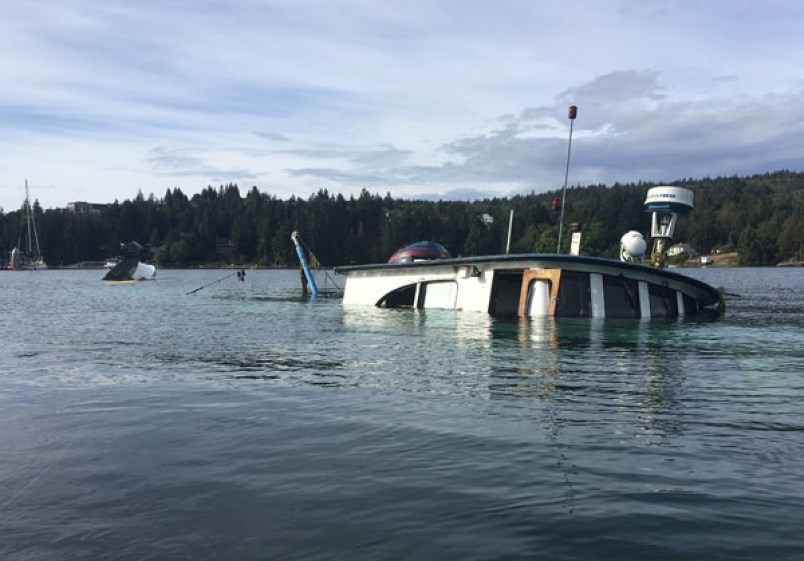The Boating BC Association is calling newly passed federal legislation on abandoned and derelict boats an “incentive for boaters to take action.”
Bill C-64, the Wrecked, Abandoned or Hazardous Vessels Act, is part of the government’s Oceans Protection Plan along with the Abandoned Boats Program that has helped fund the assessment and removal of derelict boats on the Sunshine Coast and elsewhere.
According to the government, the act prohibits vessel abandonment and makes the International Convention on the Removal of Wrecks part of Canadian law. It allows for penalties of up to $50,000 for individual private owners and $250,000 for companies that don’t comply with the act, with further fines of up to $1 million for individuals and $6 million for companies that are prosecuted for violations.
Boating BC was one of the groups that received grants through the Abandoned Boats Program and the association has been working on a public relations campaign and creation of a database that will help boat owners find disposal options.
“We know the vast majority of boaters are responsible, and step one is educating owners and ensuring they know how and where they can dispose of their vessels,” said association president Don Prittie in a release.
Speaking on the Sunshine Coast shortly before Bill C-64 became law, West Vancouver-Sunshine Coast-Sea to Sky Country MP Pam Goldsmith-Jones said she was pleased with how well the Abandoned Boats Program has been working, and was looking forward to having the legislation in place that would mean “if you own a boat you are responsible for it for the rest of its life.”
“I couldn’t be happier with the amount of attention – consistent attention – that citizens and volunteers are paying to this [issue] and the resources that places like Sechelt and Bowen Island have put into this,” she said.
Goldsmith-Jones’ colleague, North Vancouver MP and Minister of Fisheries, Oceans and the Canadian Coast Guard Jonathan Wilkinson said, “Abandoned and wrecked vessels can pose hazards, clutter our shorelines, affect sensitive marine habitats and species, and disrupt community activities. This strengthened legislation ensures these problems are addressed quickly, before they become more serious.”



